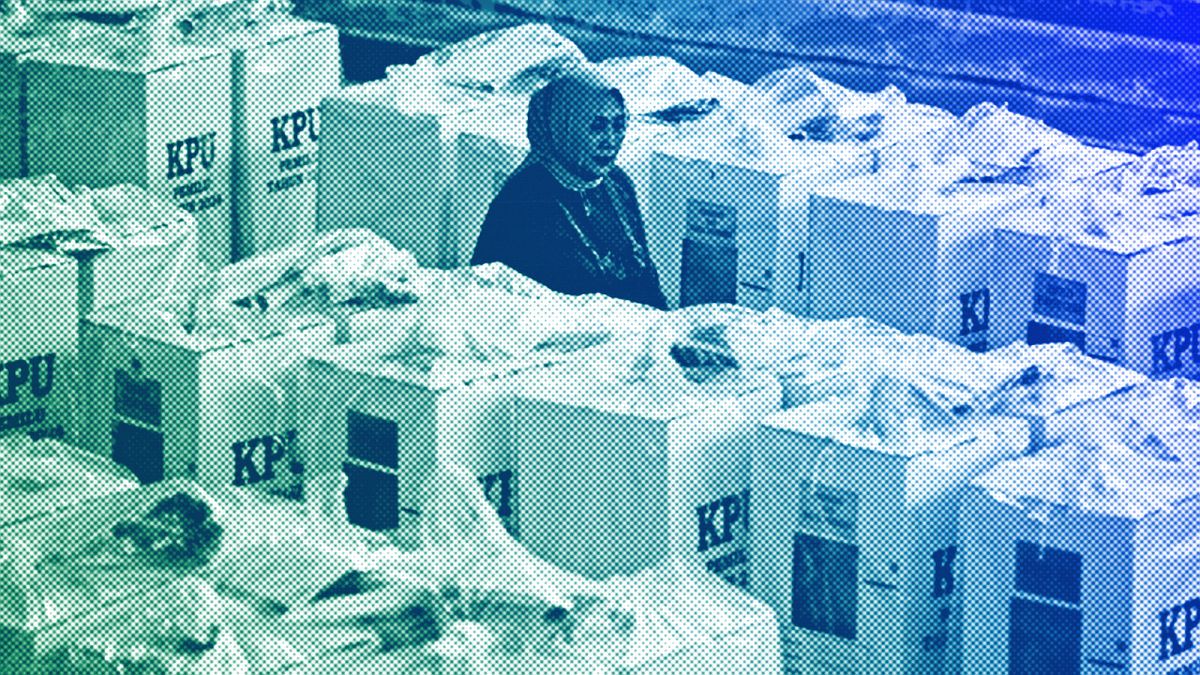General News
The threat of Russian interference in Indonesia’s elections is real

The opinions expressed in this article are those of the author and do not represent in any way the editorial position of Euronews.
As a relatively new democracy, the 14 February election will be another litmus test for Indonesia’s democratic resilience, and as the recurrent player in the disinformation arena, all eyes will be on Russia, Ross Burley writes.
Anglo-Irish satirist, cleric and social commentator Jonathan Swift once said, “Falsehood flies, and truth comes limping after it, so that when men come to be undeceived, it is too late; the jest is over, and the tale hath had its effect”.
In the fast-paced and ever-evolving landscape of politics in the technological age, it has never been easier to deceive through lies. Yet there is hope: we are blessed with the tools — if used correctly — to rectify by amplifying the truth.
The challenge, however, is to make sure that once the truth “comes limping” in, it isn’t “too late”.
Nowhere is this truer than in disinformation campaigns and how they have cast a shadow over democratic processes the world over.
As the world’s third biggest democracy, Indonesia gears up for massive elections, the potential negative impact of disinformation, in particular state-sponsored disinformation, looms large.
Understanding the multifaceted nature of this threat, therefore, and its ramifications on democracies, with an eye on Southeast Asia, is imperative if we are to safeguard the integrity of our hard-earned democratic process and institutions.
All of us are united in our belief in democracy. All of us have to work together to protect it.
The Kremlin rears its ugly head again
Over the years, one state actor has attracted more attention on this issue than others. Russia.
Indeed the issue of Russian influence on past Indonesian elections has become more and more of a concern, with allegations around how Moscow — even out of election cycles — plays an outsized role in fanning the flames of discontent, polarizing societies from Ukraine to the UK, from India to Indonesia, as and when it suits them.
Concerns have been raised before about Kremlin activity in Indonesia. While touring several cities in Indonesia during the 2019 election campaign, presidential incumbent Jokowi Widodo raised allegations that foreign forces were assisting his competition with illegitimate means, subsequently mentioning how Russian disinformation in particular, “produces nonstop slander, lies and hoaxes that confuse the people”.
And while some claimed this was simply a baseless allegation that the president was hurling at his competition as a way of discrediting them, it is entirely rational to believe that there was truth behind the president’s concerns.
Indeed, from Brexit to Trump, from Kenya to France, Russian electoral interference through disinformation is a widely reported phenomenon.
‘A firehose of falsehood’
A famous Indonesian case which caused a stir related to a conspiracy promoted by a group of well-coordinated social media accounts.
The controversy surrounded seven ballot boxes that supposedly arrived from China, and which according to the posts, had been tampered with to President Jokowi’s benefit.
The tool of choice was simply flooding the internet with the same message being pushed out by different ostensibly “real” profiles and news platforms, in what deputy chairman of Jokowi’s campaign Abdul Kadir Karding called “a firehose of falsehood”, a term he borrowed from Washington based think tank RAND who have researched the subject extensively.
In this regard he stated, “By producing massive hoaxes, the strategy aims to overturn all data and facts to influence the people, particularly in voting. It’s dangerous, because people will gradually get used to fake narratives.”
Other examples were more strategic and less focused on a specific issue. For example, only a month before the 2019 election, allegations surfaced by the head of Indonesia’s election commission (KPU) highlighting Russian hacking attempts against the voter list.
Some went so far as to claim that there were over 17 million disputed identities on the voter list, potentially a product of foreign interference.
A litmus test of democratic resilience
Indeed, the situation spilt into the democratic arena with the Russian Ambassador to Indonesia Lyudmila Georgievna Vorobieva issuing a statement through the embassy’s Twitter account, saying, “We underline that Russia’s principal position is not intervening in any domestic affairs and electoral processes in foreign countries, including Indonesia, which is our close friend and important partner”.
To paraphrase a line from Shakespeare’s Hamlet, “The ambassador doth protest too much, methinks”.
As a relatively new democracy, the 14 February election will be another litmus test for Indonesia’s democratic resilience.
And as the recurrent player in the disinformation arena, in particular, when it comes to undermining democratic processes, all eyes will be on Russia.
Ross Burley is Co-founder and Executive Director of the Centre for Information Resilience (CIR).
At Euronews, we believe all views matter. Contact us at view@euronews.com to send pitches or submissions and be part of the conversation.
Source
Disclaimer: No copyright infringement intended. All rights and credits reserved to respective owner(s).
























